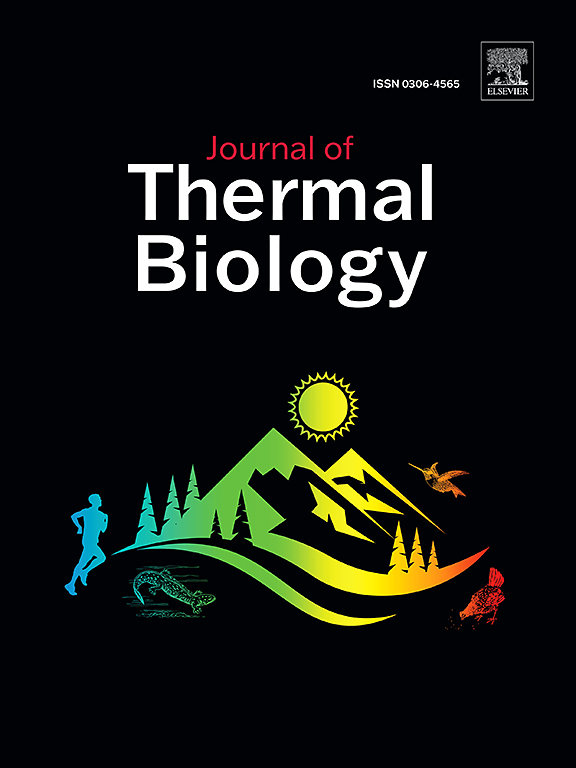Lactobacillus plantarum 4-2 alleviates cyclic heat stress-induced oxidative stress and damage in the ileum of laying hens via Keap1-Nrf2 pathway
IF 2.9
2区 生物学
Q2 BIOLOGY
引用次数: 0
Abstract
The frequency and severity of heat stress in livestock production are increasing due to intensive farming practices and rising global temperatures. Due to the lack of sweat glands, poultry are highly susceptible to heat stress, especially in the intestinal tract. Therefore, it is crucial to find environmentally friendly, safe, and effective methods to alleviate heat stress. Probiotics have often been used to mitigate intestinal damage and maintain intestinal function. In this study, the efficacy and mechanism of action of Lactobacillus plantarum 4-2 on oxidative damage and inflammation induced by cyclic heat stress in laying hens were investigated. The results showed that addition of Lactobacillus plantarum 4-2 (≥1 × 109 CFU/day/bird) significantly enhanced growth performance and improved the antioxidant capacity of the organism in cyclic heat-stressed laying hens. Meanwhile, ileum barrier damage was alleviated, expressions of intestinal tight junction proteins were elevated, and cyclic heat stress-induced decreases in ileum villus height and villus/crypt were ameliorated. Supplementation with Lactobacillus plantarum 4-2 resulted in a significant decrease in the expression of Ifn-γ and Il-6 and an increase in Il-10 and Tgf-β1, which attenuated the disruption of the ileum barrier and inflammatory damage by cyclic heat stress. Furthermore, Lactobacillus plantarum 4-2 decreased the level of Keap1 and increased the levels of Nrf2, NQO1, and HO-1, thereby alleviating cyclic heat stress-induced ileum oxidative stress. These results indicated that Lactobacillus plantarum 4-2 could enhance the antioxidant function, alleviate oxidative stress, and reduce ileum damage via Keap1-Nrf2 signaling pathway.

求助全文
约1分钟内获得全文
求助全文
来源期刊

Journal of thermal biology
生物-动物学
CiteScore
5.30
自引率
7.40%
发文量
196
审稿时长
14.5 weeks
期刊介绍:
The Journal of Thermal Biology publishes articles that advance our knowledge on the ways and mechanisms through which temperature affects man and animals. This includes studies of their responses to these effects and on the ecological consequences. Directly relevant to this theme are:
• The mechanisms of thermal limitation, heat and cold injury, and the resistance of organisms to extremes of temperature
• The mechanisms involved in acclimation, acclimatization and evolutionary adaptation to temperature
• Mechanisms underlying the patterns of hibernation, torpor, dormancy, aestivation and diapause
• Effects of temperature on reproduction and development, growth, ageing and life-span
• Studies on modelling heat transfer between organisms and their environment
• The contributions of temperature to effects of climate change on animal species and man
• Studies of conservation biology and physiology related to temperature
• Behavioural and physiological regulation of body temperature including its pathophysiology and fever
• Medical applications of hypo- and hyperthermia
Article types:
• Original articles
• Review articles
 求助内容:
求助内容: 应助结果提醒方式:
应助结果提醒方式:


